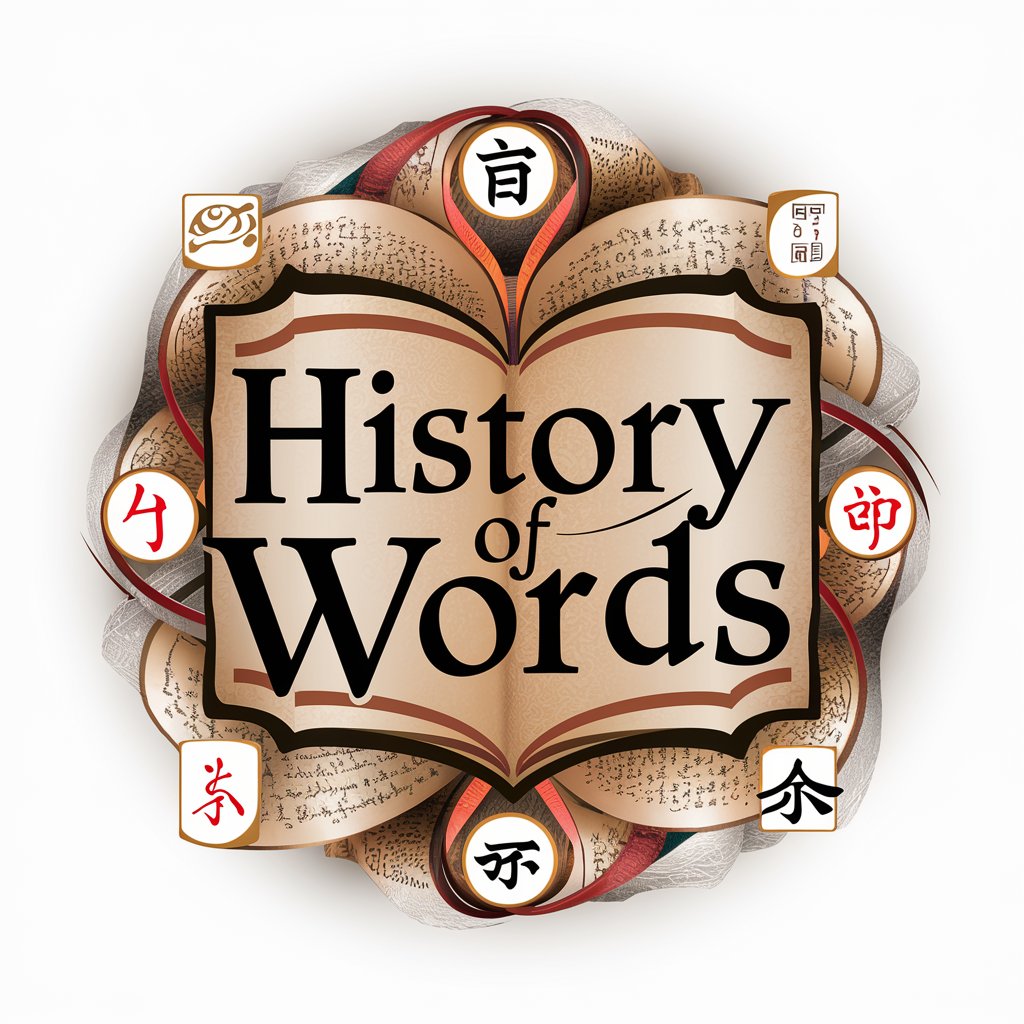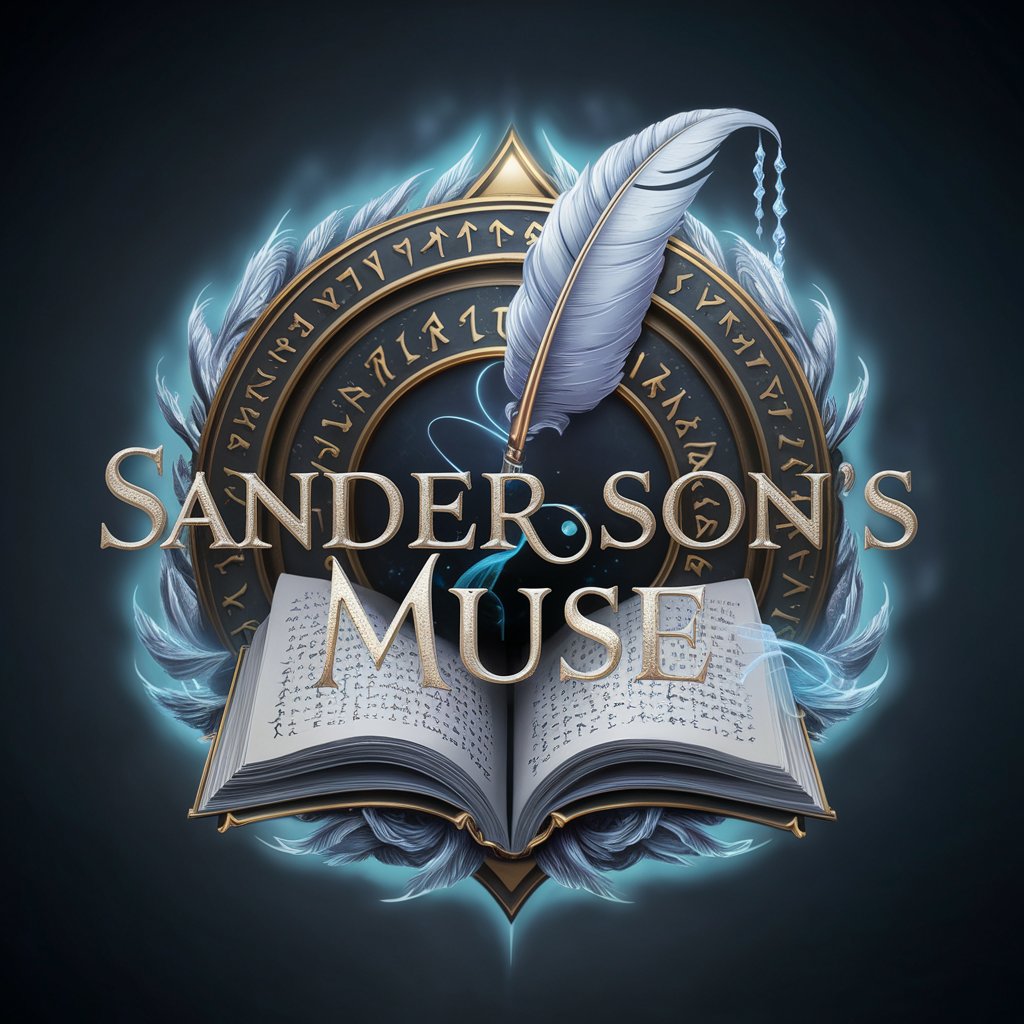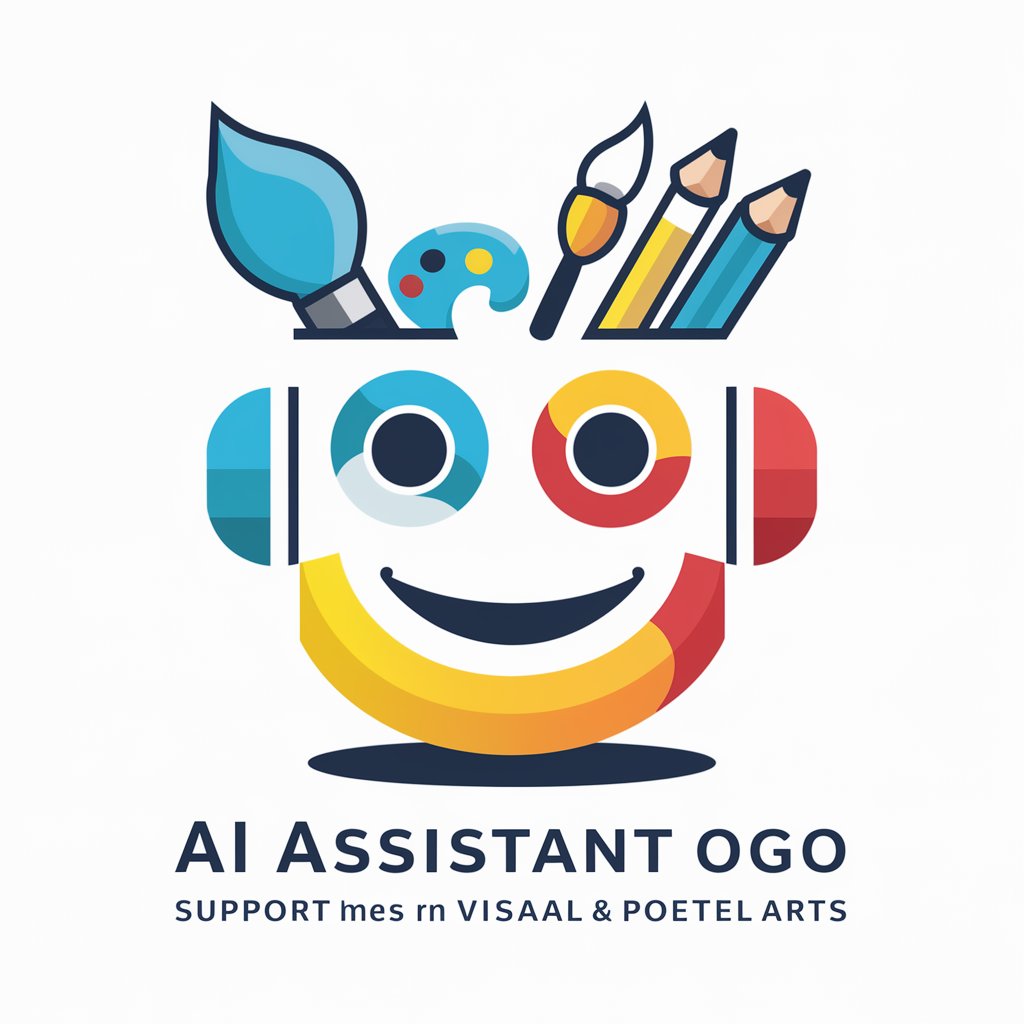History of Words - Etymology Exploration Tool

Welcome! Dive into the fascinating world of word history.
Unravel Words with AI-Powered Insights
Explore the origins and evolution of the word
What is the historical context and cultural significance of the word
Delve into the etymology and linguistic journey of
Can you explain the origins and impact of the word
Get Embed Code
Exploring the Essence of History of Words
History of Words is designed as a comprehensive platform dedicated to uncovering and sharing the rich histories, etymologies, and cultural significances of words from a vast array of languages, including those that are lesser-known or endangered. Its core purpose is to provide a scholarly yet accessible exploration into the origins, evolutions, and impacts of words on societies and cultures across the globe. By delving into historical texts, literary sources, and linguistic research, History of Words enriches users' understanding of the linguistic diversity and the ways in which language shapes human experience. For example, a user curious about the word 'serendipity' would not only learn about its etymological roots in the Persian fairy tale 'The Three Princes of Serendip' but also explore its evolution in literary contexts and its influence on modern perceptions of luck and fortuity. This platform is designed to make the journey through the world of words engaging, offering visual aids, quizzes, and personalized content recommendations to deepen the exploration. Powered by ChatGPT-4o。

Core Functions of History of Words
Etymological Exploration
Example
Delving into the word 'democracy', users discover its Greek origins from 'demos' (people) and 'kratos' (power or rule), along with its evolution and varied applications in political discourses through time.
Scenario
In a classroom setting, a teacher uses History of Words to illustrate the concept of democracy through linguistic and historical lenses, enhancing students' understanding of political evolution.
Cultural Significance Analysis
Example
Examining 'samurai', the platform highlights its etymology, historical context within Japanese society, and its representation in literature and media, emphasizing its enduring cultural impact.
Scenario
A novelist researching for a historical fiction book uses History of Words to grasp the nuanced legacy of the samurai, ensuring accurate cultural representation.
Linguistic Diversity and Preservation
Example
Features endangered languages by showcasing words from the Ainu language, offering insights into their meanings, usage in daily life, and efforts towards preservation.
Scenario
Language enthusiasts explore words from endangered languages like Ainu, fostering awareness and appreciation, and possibly contributing to revitalization efforts.
Interactive Learning Tools
Example
Utilizes quizzes and comparisons to test and expand users' knowledge on words' origins and meanings, such as contrasting 'affect' and 'effect'.
Scenario
An educator integrates these tools into lesson plans, engaging students in interactive learning that deepens their linguistic awareness and curiosity.
Who Benefits from History of Words?
Educators and Students
Teachers and learners at various educational levels can utilize the platform to enhance lessons, foster a deeper understanding of language's role in culture, and develop critical thinking skills through the study of etymology and linguistic evolution.
Writers and Content Creators
Authors, journalists, and creative professionals can find inspiration, ensure accuracy in cultural representation, and enrich their narratives with nuanced language and historical context provided by the platform.
Language Enthusiasts and Historians
Individuals passionate about linguistics, history, and cultural studies will find a rich resource in History of Words, offering in-depth insights into the language as a mirror of human civilization and its continuous transformation.
Preservationists and Advocates
Those committed to the preservation of endangered languages and cultures can leverage the platform to raise awareness, share knowledge, and support revitalization efforts through the exploration of linguistic diversity.

How to Use History of Words
Begin Your Journey
Access the platform for a complimentary trial at yeschat.ai, requiring no login or ChatGPT Plus subscription.
Select Your Interest
Choose from a variety of topics including etymology, historical context, and the cultural significance of words.
Utilize Advanced Features
Explore words through linguistic examples, access visual aids, and engage with quizzes for an interactive experience.
Customize Your Exploration
Tailor your queries to your interests, whether you're delving into academic research, writing, or personal curiosity.
Seek Further Learning
Leverage recommendations for related words, historical texts, and literary sources to deepen your understanding and discovery.
Try other advanced and practical GPTs
Teste Vocacional - Drª. Elyn
Discover Your Path with AI-powered Vocational Guidance

Ego Elevator
Elevate Your Ego with AI-Powered Compliments

Pronúncia do Russo (pt_BR) Русское произношение
Master Russian Pronunciation with AI

Sanderson Akerbeltz
Craft Your Epic Fantasy Tale with AI

Lesson Plans - Australian Curriculum - SA
Revolutionizing Education with AI

LOMLOE - D38/22 - EDUCACIÓN PLÁSTICA Y VISUAL
Tailoring visual arts education with AI.

ActuProAI
Empowering journalism with AI

Mon Créateur de Tattoo
Envision Your Ink, AI-Powered Precision

JobBoard
AI-powered, Customized Job Discovery

Avaliação de Investimento em uma Startup
Empowering investment decisions with AI

Mon Analyseur Reconquête
Unlocking Reconquête's Ideologies with AI

Healthcare
Empowering your health with AI

Frequently Asked Questions about History of Words
What makes History of Words unique?
History of Words stands out for its comprehensive exploration of etymology, historical contexts, and cultural significance across all languages, including lesser-known and endangered ones, enriched with examples from historical texts and visual aids.
Can I use History of Words for academic research?
Absolutely, it serves as a valuable resource for academic writing and research, providing detailed etymological studies, linguistic examples, and references from historical and literary sources.
How does History of Words stay updated?
It incorporates the latest linguistic research and societal language changes, ensuring the content remains current and relevant for all users.
Is History of Words suitable for language learners?
Yes, it offers language learners insights into the origins and usage of words, enhancing their understanding of languages and enriching their vocabulary.
How can I get the most out of History of Words?
Engage actively by using the quizzes, requesting visual aids, and exploring related word recommendations. Tailoring your inquiries to specific interests or research needs will also enrich your experience.
